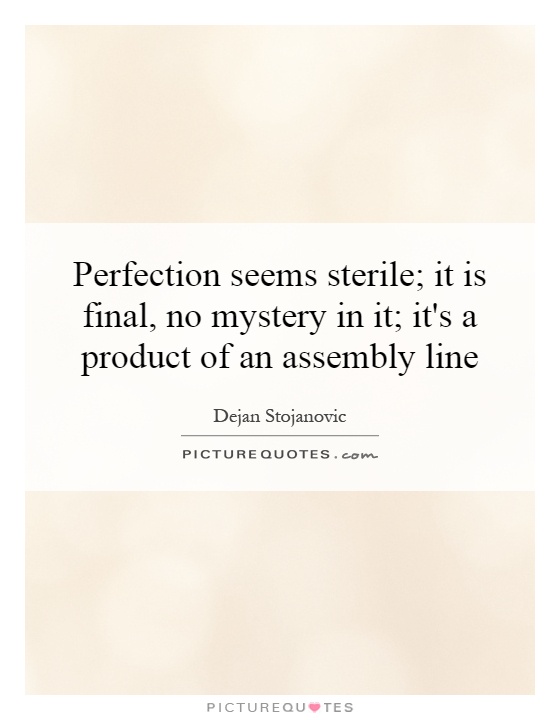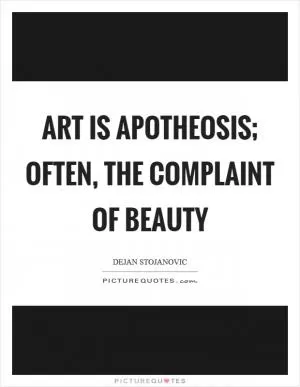Perfection seems sterile; it is final, no mystery in it; it's a product of an assembly line

Perfection seems sterile; it is final, no mystery in it; it's a product of an assembly line
The concept of perfection is often associated with precision, flawlessness, and ultimate achievement. However, when we delve deeper into the idea of perfection, we may find that it is not as desirable as it may seem at first glance. In fact, perfection can be seen as sterile and lacking in depth and complexity.When something is perfect, it is considered to be the best version of itself, with no room for improvement or growth. This finality can make perfection seem static and unchanging, devoid of the mystery and intrigue that comes with imperfection. In a way, perfection can be likened to a product of an assembly line, where each piece is meticulously crafted to fit a specific mold and adhere to strict standards.
In the context of a line, perfection can be seen as the end goal, the ultimate destination that we strive to reach. However, when we focus solely on achieving perfection, we may lose sight of the journey and the process of getting there. The line becomes a rigid path that we must follow, with no room for deviation or exploration.
On the other hand, imperfection allows for spontaneity, creativity, and growth. When we embrace our flaws and imperfections, we open ourselves up to new possibilities and experiences. Imperfection is what makes us human, what gives us depth and character. It is the cracks and imperfections in a piece of art that make it truly unique and beautiful.
In the context of a line, imperfection can be seen as the twists and turns, the detours and deviations that make the journey more interesting and fulfilling. It is the unexpected surprises and challenges that make the line worth following. Imperfection adds a sense of mystery and excitement to the journey, making it more dynamic and engaging.












 Friendship Quotes
Friendship Quotes Love Quotes
Love Quotes Life Quotes
Life Quotes Funny Quotes
Funny Quotes Motivational Quotes
Motivational Quotes Inspirational Quotes
Inspirational Quotes